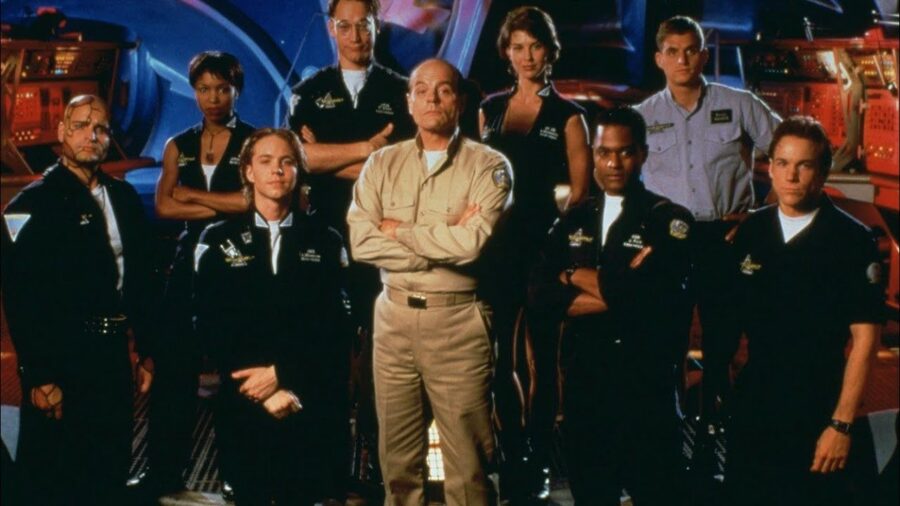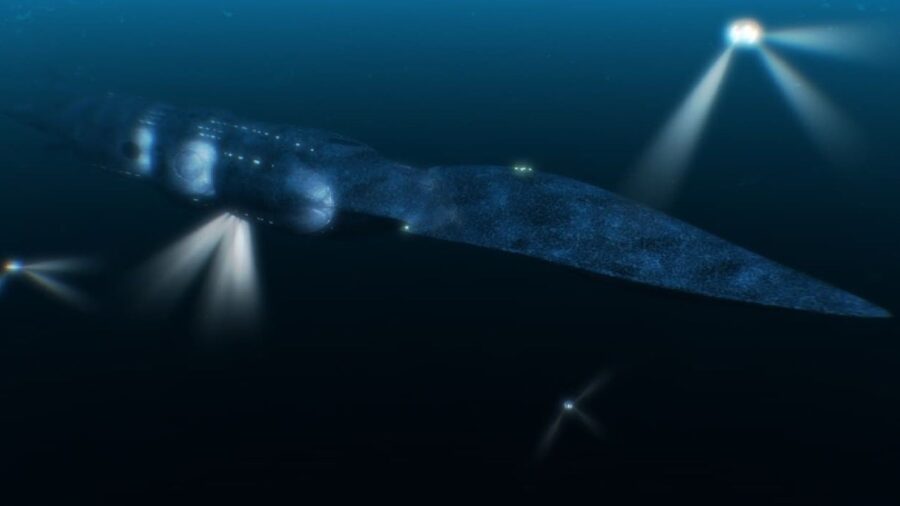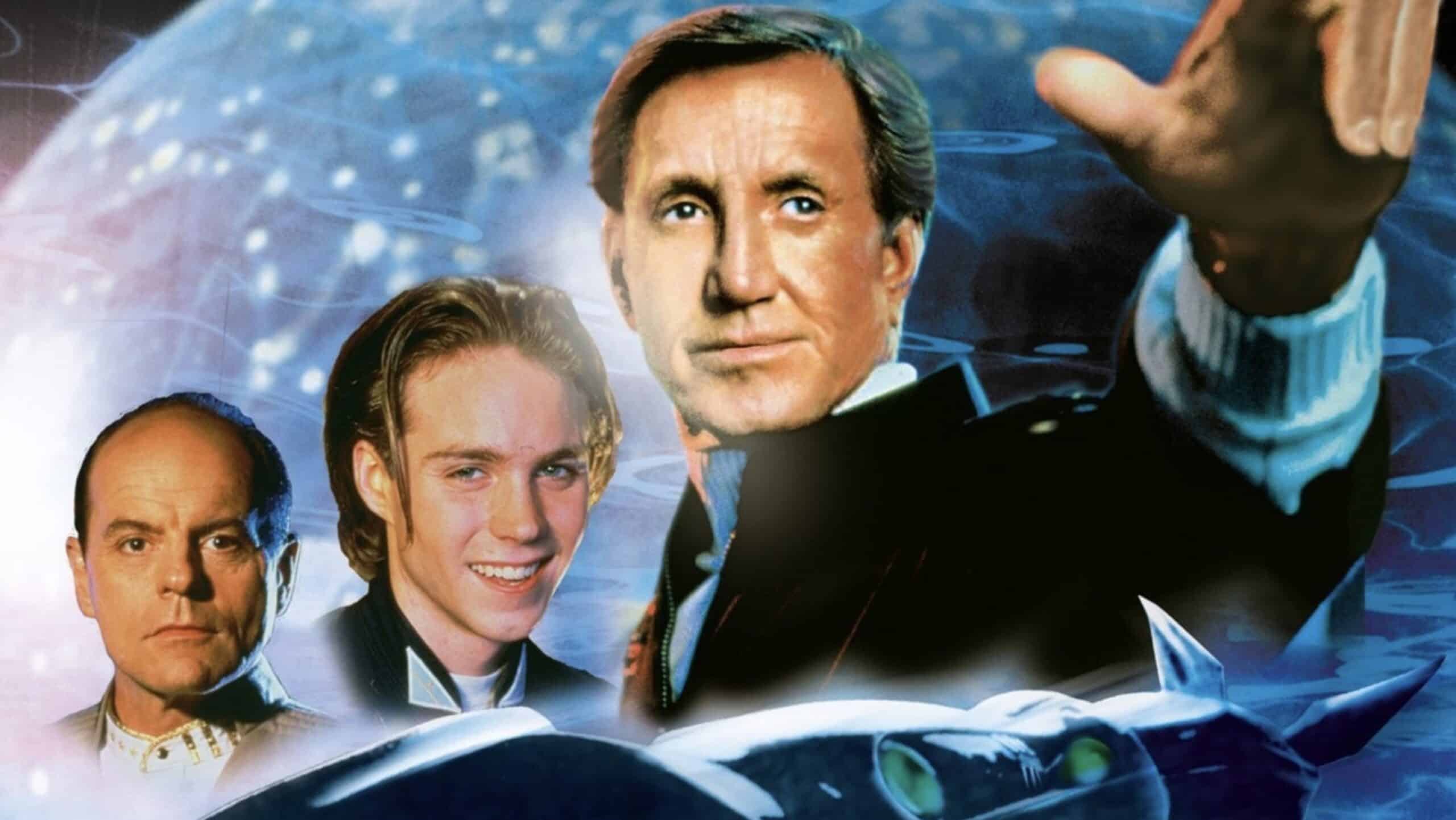By Drew Dietsch
| Published

During Dangerous Animals (my review), Jai Courtney’s Tucker stands on the deck of his boat and points to the night sky. He talks about how mankind has always looked to the stars to describe where God lives. “God’s not up there,” Tucker says, and his hand drops downward to point at the abyssal depths. “God’s down there.”
Tucker goes on to talk about how life on this planet started in the deep. It got me thinking about my ever-growing disdain of real-world beliefs about space colonization when we continue to do everything we can to murder the largest part of our own planet: the ocean. This has also led me to feeling less and less enthusiastic about spacefaring fantasies like Star Trek, especially the current iteration of the franchise which I’m done with.
It’d be nice to see imagination in pop culture used to encourage a better relationship with our ocean and its future. Maybe that Nautilus show is doing that? I’ll never know because it’s on a streaming service I don’t subscribe to. Thankfully, I do have a Peacock subscription and it’s led me to rediscover the series SeaQuest DSV, a show I never paid tons of attention to as a kid but now feels ripe for reinvention.
The Important Part of SeaQuest DSV

You’re smart enough to find a show synopsis on your own, but I will say that the main concept of SeaQuest DSV is what I want to focus on in regards to arguing for its return. It’s very much an intentional inner-space riff on Star Trek: in the future, a united civilization works together to protect and explore an unknown frontier. In this case, it’s the United Earth Oceans Organization. The very idea of doing the Star Trek formula but on the actual planet we live on is what I’ll be expanding on later.
The actual bulk of SeaQuest DSV that I’ve seen is a mostly charming, antiquated piece of television storytelling that I don’t actually feel strongly about. It’s nothing amazing but rarely terrible, with characters that hover between serviceable and almost interesting. Frankly, it’s a show aiming for a younger audience than my current self, and I was just a little too young to get into it when it originally aired. So, I also don’t hold any particular nostalgia for this as an intellectual property.
But I’ve always loved the ocean more than the stars. That’s where I want our culture’s curiosity pointed and SeaQuest DSV is exactly the right fit for it.
Explore The Depths of Our Planet and Our Humanity

The idea of a united government body on Earth that has to work together for the entire planet is a concept I want to see more of in popular media. Come to think of it, Pacific Rim is a more aggressive riff on that concept, but it’s that kind of border-breaking mindset that fuels the utopian vision of Star Trek.
However, SeaQuest DSV gives the potential metaphor of unity even more juice by having the concept not be focused on outward expansion through space, but rather inward exploration through the ocean’s depths. Star Trek liked to posit that humanity had figured all its societal problems out, so now the only thing left to do was explore the universe. SeaQuest DSV as a concept has more nuance by saying, “We’ve still got borders and nations on the surface, but we’re trying to make the ocean a place where humanity can start to evolve as a singular civilization.” It’s an idea that can be strengthened to better use the ocean depths as a thematic playground for a place where we can confront the darkest of societal issues and come out better.
Plus, we should be encouraging exploration of our planet’s depths in fiction because we should be encouraging exploration of our planet’s depths in reality. We still know so little about all the incredible life and ecosystems that exist in the deepest parts of Earth. This kind of science is far more important and integral to our planet and our species than whatever flaccid, pie-in-the-sky rocket grift the techbro elitists are cooking up next.
A Fresh Idea Instead of a Tired One

Star Trek as a franchise continues to chug along but no one can argue it’s at its prime as a pop culture attraction. On the other hand, SeaQuest DSV is so niche that you could probably rip its core premise off wholesale, slap some different names on it, and present it as a truly fresh idea. I’m certainly not against that approach. It’s possible the name SeaQuest might read as too silly to a modern audience, especially since Star Trek parody Galaxy Quest helped attach the word “quest” to yet another riff on Roddenberry’s opus.
I just want to see a popular piece of media capture our culture’s imagination and interest in our oceans. Space is both played out in movies and television for me at this stage, and it’s also not looking like an actual future for our species any time soon. Instead, we should pay far more attention to the waters that birthed us instead of suffocating them with even more pollution. Maybe if a generation could get its Star Trek about the ocean, it would inspire a larger number of people to care about this planet instead of dreaming about screwing up another one.
So, screw any SeaQuest canon or characters or fealty to the source material. Just make a new SeaQuest (or rip it off) and give me a reason to see hope for the future of humanity. Because I don’t see that hope in space anymore.
